Women of Fiji look for support to rebuild their livelihoods
Date:
Just six months ago, 29-year-old Sofia Talei was proudly showing UN Women her farm in Tailevu, Fiji; sharing her plans for building her family’s future and her desire to play her part in keeping fresh food affordable for her fellow Fijians. Today those plans are in tatters.
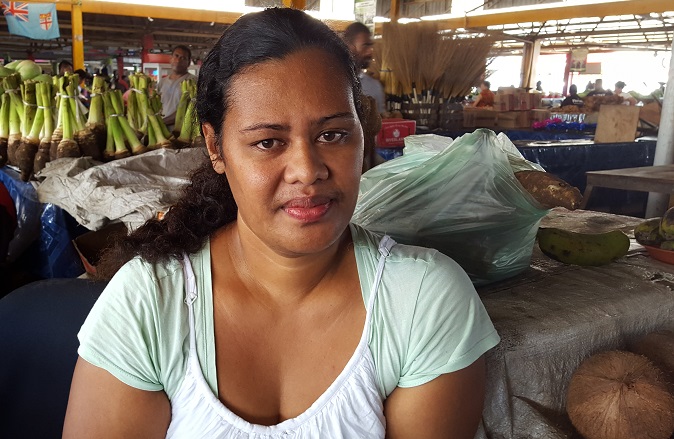
On Saturday 20 February, Tropical Cyclone Winston ripped through Fiji. One of the biggest cyclones ever recorded in the Southern Hemisphere, it packed wind gusts of more than 300kmph that flattened villages, destroyed crops and damaged essential infrastructure. Sofia’s farm was one of the casualties.
“We placed so much expectation on our farm to help us pay for our expenses, including my children's education and medicine,” Sofia says. “We need to salvage what we can to help us cover our expenses.”
To that end, she was back at Suva Market with her two children just two days after the cyclone. However, the root crops and other vegetables that usually fill up her stall were replaced with coconuts—all she has left to sell. What comes next is uncertain; it will take at least four months to get even the fastest-growing crops to a point where she can earn money from them.
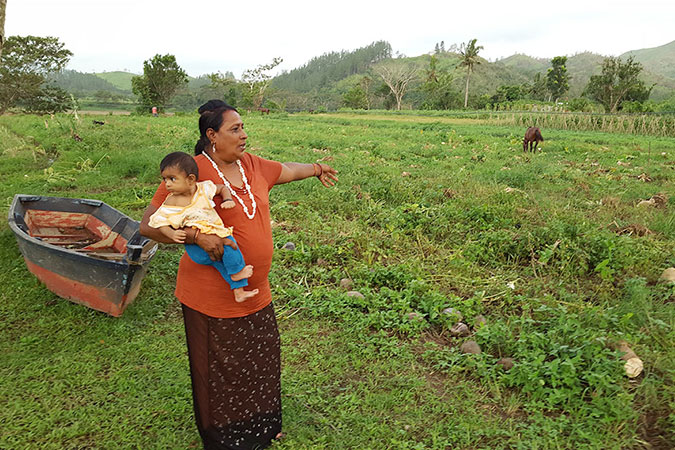
Raj Wati relied on her pawpaw plantation in Sigatoka for her family income. She invested the majority of her profits back into the farm and used the rest to buy school supplies for her grandchildren and for the family’s shopping.
Her plants had been cut and readied for planting in April, once the rainy season had passed. Now, they’re all gone and anything growing near the river has been destroyed by flooding. Three days after Cyclone Winston hit, she was at the local market selling leftover eggplant.
“We don’t know how long we will have any produce to sell. Perhaps next week we won’t have anything to bring to the market,” she says.
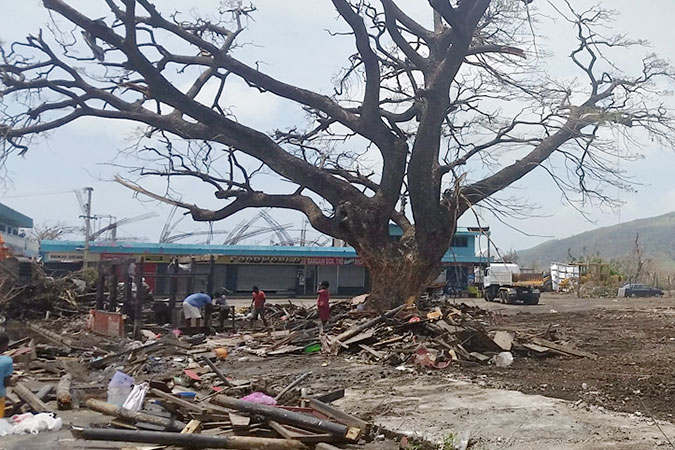
Sofia and Raj are two of the thousands of women in Fiji who rely on their income, gleaned from selling produce or handicrafts at local markets, to pay for their children’s education and day-to-day living expenses. The destruction of crops and market buildings not only takes away their source of income, it threatens the food security of entire communities, as well as having wider implications for their families’ health, nutrition and education.
Through its Markets for Change project, UN Women will also be working with partners to provide women market vendors with tools, supplies, seeds and training so they can replant their gardens and get back on their feet as quickly as possible; while also working with local governments to rebuild market buildings that have either been severely damaged or completely destroyed.
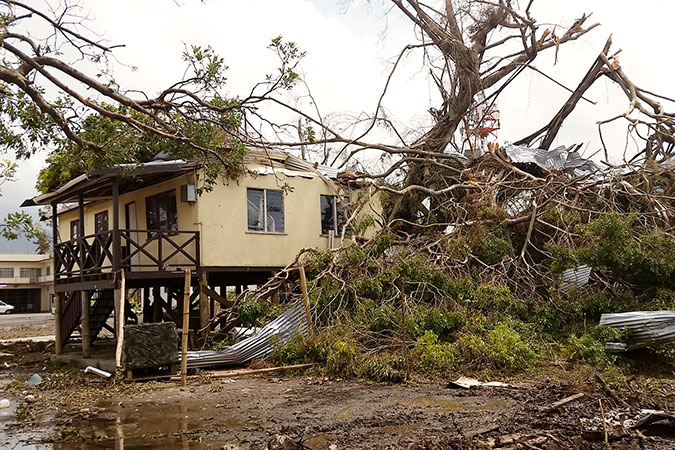
Gendered roles in society mean that in the aftermath of any disaster women and girls experience a number of secondary impacts including violence and trauma, loss or reduction in economic opportunities, and an increased workload.
The women of Fiji already faced rates of violence double the global average and the aftermath of the cyclone puts women and girls at an even greater risk of sexual or physical assault, even as they work to rebuild their homes and livelihoods.
UN Women is providing organizations that work to end violence against women and girls in Fiji with the funds and technical support they need to continue offering essential services, while also working with local partners to create temporary market spaces that give women opportunities to sell their produce and access essential information about relief and protection services.
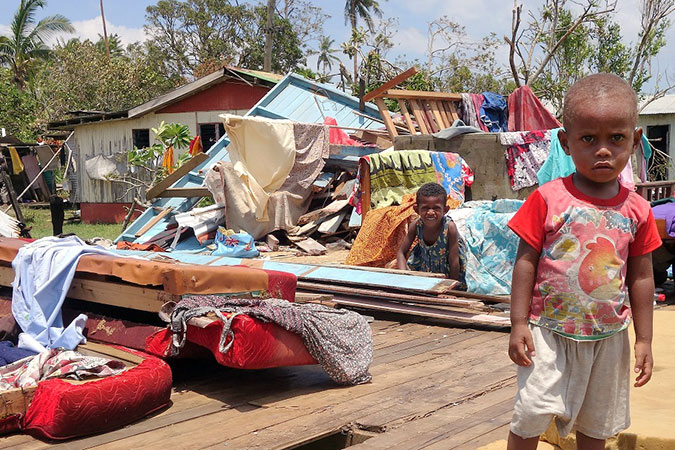
You can help UN Women support the women and girls of Fiji and keep them safe by donating here: https://unwomen.org.au/take-action/donate/fiji-cyclone-appeal/